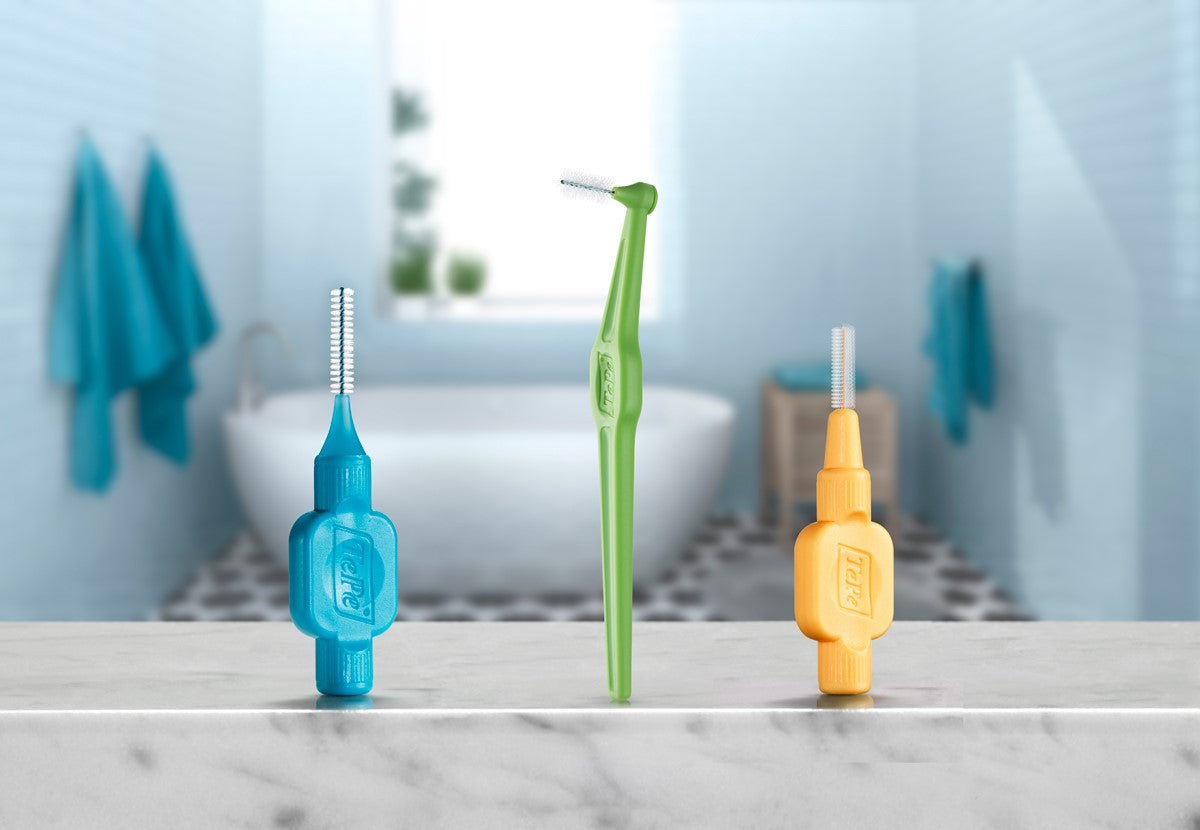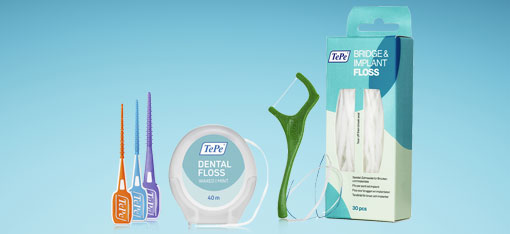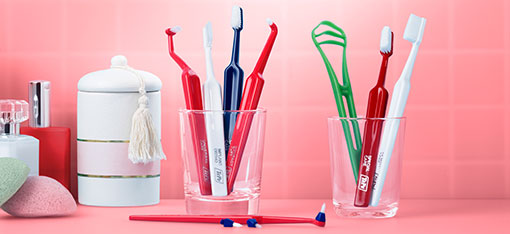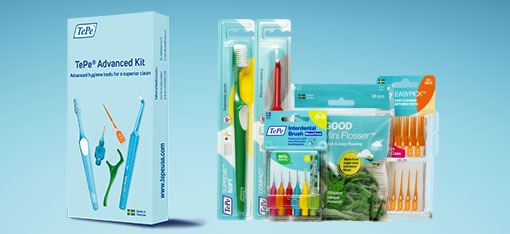Your Mouth
Your mouth is a window into your body. The mouth can show signs of general infection, side effects to medications, nutritional deficiencies, signs of systemic diseases, and more. By having good oral hygiene and visiting your dental professional regularly you are taking care of your entire body!
Choose your topic from the menu below.
Dry Mouth
Dry mouth
All you need to know about dry mouth
A dry mouth can be uncomfortable and increases the risk of cavities and infections, which makes good oral hygiene even more important.
Dry mouth – when your saliva runs low
Saliva has a very important role to play for oral hygiene. The saliva helps to cleanse the mouth from bacteria which prevents plaque from building up on and around the teeth. With less saliva, the teeth become more vulnerable to cavities, and the soft tissues in your mouth become sensitive and susceptible to infection.
Causes and effects of dry mouth
There are many causes for dry mouth. Dry mouth occurs when your salivary glands don’t produce enough saliva. The production of saliva becomes reduced with age. With less saliva, your teeth and gums become more vulnerable to caries and infection.
Medication, diseases or stress can also contribute to dry mouth. Consult your dentist if you experience problems with dry mouth so that these can be identified and treated at an early stage.
Common symptoms include a “sticky” feeling in the mouth, stringy saliva, and a sore throat. Bad breath and dry lips can also be indications of a dry mouth.
Treating your dry mouth
If your dentist or doctor can identify the causes for your dry mouth, treatment may improve your condition.
Five remedies to try yourself
1. Drink water often
2. Sugar-free gum or lozenges
3. Avoid acidic food and the use of tobacco
4. Brush your teeth twice a day
5. Clean between your teeth daily
Bad Breath
What is bad breath?
Taking good care of your dental implants is vital for long-term success. With proper home care and professional maintenance, your new teeth can last for life.
Causes of bad breath
There are many causes of bad breath and one of them is poor oral hygiene. Bacteria build-ups around and between your teeth can cause an unpleasant odor. These bacteria also produce acid when you eat and can lead to cavities.
If you suffer from gum inflammation (gingivitis) or loosening of teeth (periodontitis), your mouth contains an extra amount of bacteria that contribute to bad breath. In these cases, professional treatment of the diseases is necessary to help cure bad breath.
Bacteria also thrive on the top surface of the tongue and reducing these bacteria is an important part of treating bad breath.
Bad breath can also be caused by strongly flavored food and strong-smelling drinks such as coffee and alcohol. Bad breath caused by eating and drinking is often temporary. Medication and some medical conditions may be a source of bad breath, contact your health professional for advice.
Treating bad breath
Depending on the cause of your bad breath the treatment can vary. Usually, good oral hygiene is effective – cleaning your gums and teeth twice a day, as well as cleaning between your teeth with interdental brushes or dental floss. Use a tongue cleaner to prevent the build-up of bacteria on your tongue and reduce bad breath.
Visit your dentist for regular check-ups of your oral hygiene. Your dentist can recommend you the best way to keep your teeth, gums and mouth healthy and will help you remove plaque build-up.
How to prevent bad breath
1. The most efficient way to prevent bad breath is to maintain a good daily oral hygiene routine.
2. Brush your teeth with a gentle toothbrush with fluoride toothpaste twice a day.
3. Use an interdental brush or dental floss to clean between the teeth, where the most bacteria hide.
4. Use a tongue cleaner to remove bacteria from the tongue surface
5. Visit your dentist regularly for a check-up of your oral hygiene.
2. Aging Population
• Learn about TePe as a company with a brief introduction of TePe’s product portfolio
• Discuss the importance of oral health for the aging population
• Explore suitable TePe products for the aging population
• Discuss resources to use chairside with patients and how to access products
3. Children's Teeth
• Learn about TePe as a company with a brief introduction of TePe’s product portfolio
• Discuss the importance of oral health for children
• Explore suitable TePe products for children
• Discuss resources to use chairside with patients and how to access products
4. Orthodontic Care
• Learn about TePe as a company with a brief introduction of TePe’s product portfolio
• Discuss the importance of oral health during orthodontic treatment
• Explore suitable TePe products during orthodontic treatment
• Discuss resources to use chairside with patients and how to access products
5. Sustainability
• Learn about TePe as a company with a brief introduction of TePe’s product portfolio
• Explore what sustainability means at TePe
• Understand TePe’s journey to sustainable change
• Summarize the benefits of pursuing sustainable products










